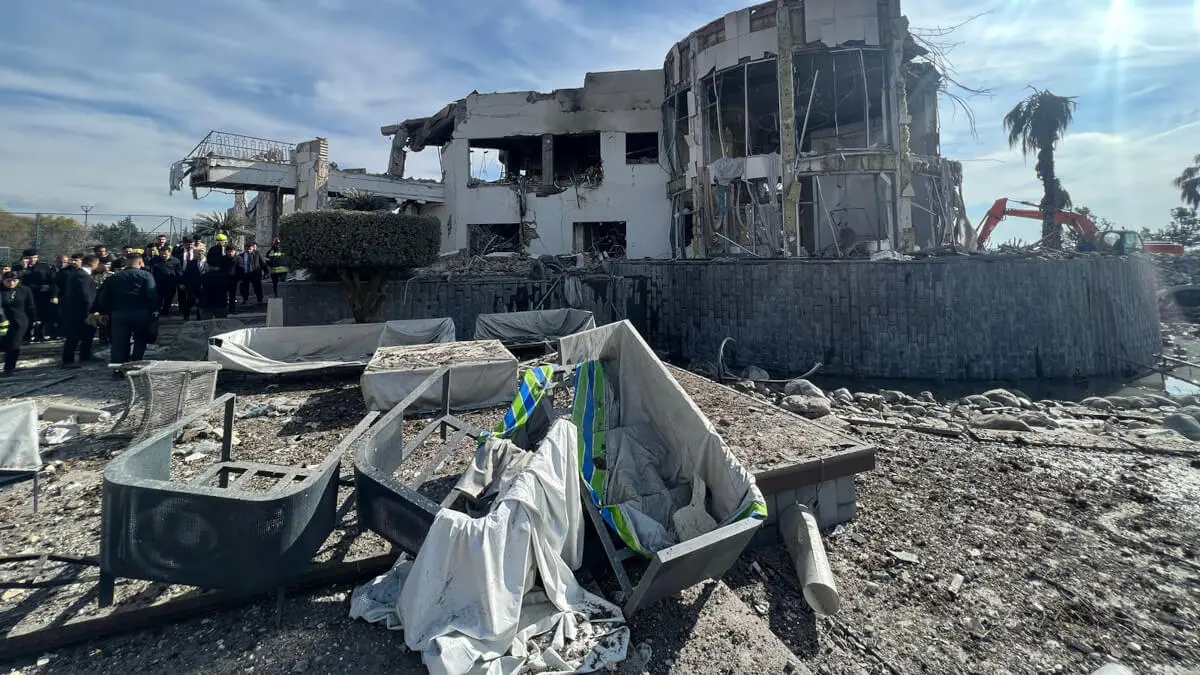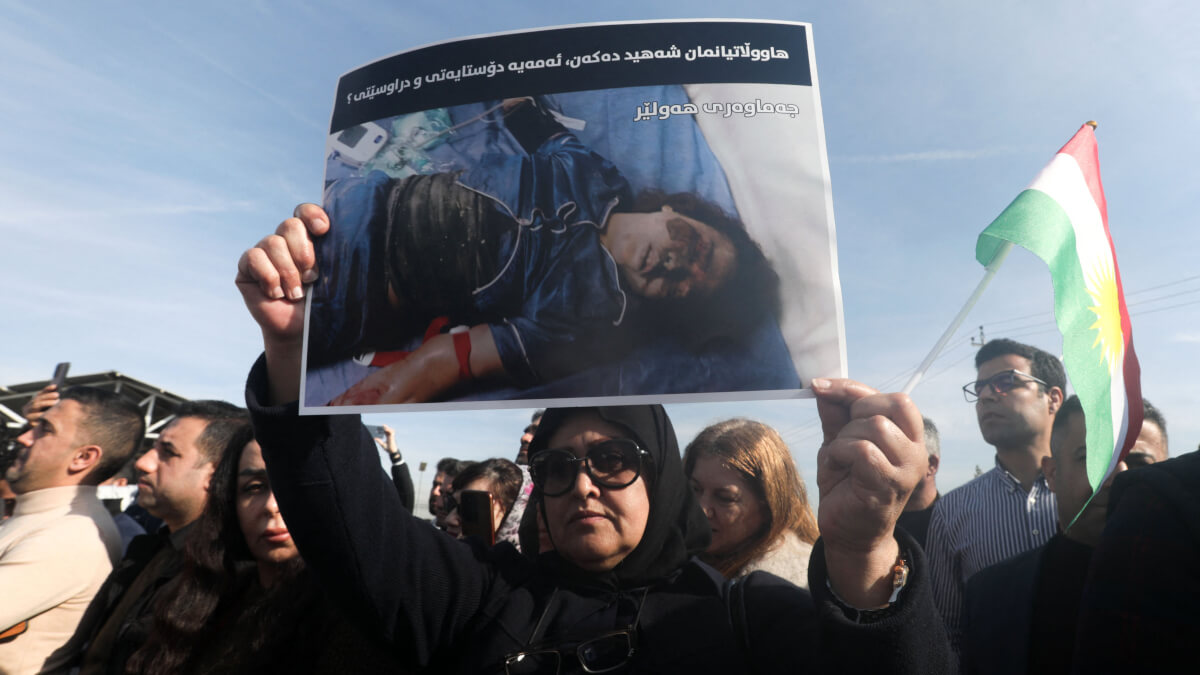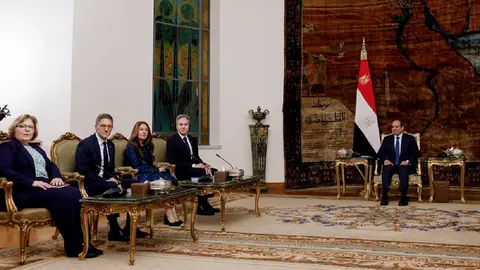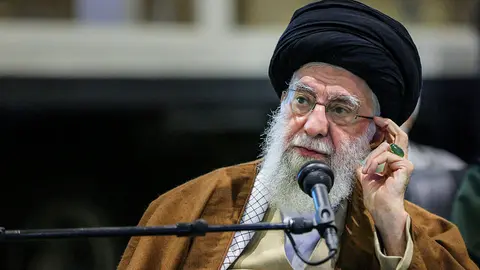Iran strikes Iraq and Syria, escalating tensions in the Middle East

Fears that the war between Israel and Hamas will expand regionally continue to grow following recent Iranian attacks on Israeli "spy headquarters" near the US consulate in the Iraqi Kurdistan capital city of Erbil.
Four civilians were killed in the Iranian attack, including a one-year-old baby girl and Peshraw Dizayee, a Kurdish businessman who owns several companies involved in real estate projects in Kurdistan.
Aerial footage showing the aftermath of the ballistic missile attack which struck the residence of Kurdish businessman Peshraw Dizayee.
— Rudaw English (@RudawEnglish) January 16, 2024
📷: Bilind T. Abdullah pic.twitter.com/6MtbZSIEeZ
One of the missiles launched by the Iranian Revolutionary Guard hit Dizayee's house, killing his family as well. According to the pro-regime Iranian media, the Kurdish businessman's work was a cover for the Mossad. They also accuse him of protecting and supporting the Israeli intelligence agency in Erbil.
Both Kurdish and Iraqi political authorities have condemned the Iranian attacks. Kurdish Prime Minister Masrour Barzani called the actions a 'crime against the Kurdish people', while the Iraqi government summoned Iran's chargé d'affaires in Baghdad to express its rejection of the attacks. Baghdad also assured that it would take all legal measures against what it called "a violation of Iraq's sovereignty".

Iran justified its actions by citing "the recent atrocities of the Zionist regime, which resulted in the assassination of commanders of the Revolutionary Guards and the Axis of Resistance". In late December, an Israeli air strike killed General Seyed Razi Mousavi, an adviser to the Revolutionary Guards in Syria.
However, this is not the first time Iran has attacked Iraqi Kurdistan. According to Tehran, the region is home to Iranian separatist groups as well as pro-Israeli operatives.
#BREAKING A video released by the IRGC-affiliated Sabereen News purportedly shows the moment Iranian precision missiles hit the house of investment mogul Peshrow Dizayee, killing at least five people, according to Kurdish officials. https://t.co/KTTswo2LHQ pic.twitter.com/TParEmc6hN
— Iran International English (@IranIntl_En) January 15, 2024
While Iran is attacking Iraqi Kurdistan, Turkey is attacking Kurdish communities in northern Syria, a region it has been bombing for weeks, taking advantage of the international spotlight on Gaza.
One of the hardest hit towns is Rojava, where Turkish attacks have left the local population without electricity. According to the Syrian Observatory for Human Rights (SOHR), 146 people died last year in northern Syria as a result of Turkish attacks, which have also destroyed civilian and military infrastructure.
Esto no es Gaza. Es #Rojava.
— Amina Hussein (@aminahekmet) January 15, 2024
Es la destrucción causada por el terrorismo turco en la infraestructura e instalaciones de servicio.#Qamishlo #kobane pic.twitter.com/SCwcslXvB9
In recent hours, the Iranian Revolutionary Guard also launched attacks against northern Syria, specifically against targets linked to Daesh, the terrorist organisation that claimed responsibility for the attack on the memorial of General Qassem Soleimani earlier this month.
These latest developments, especially the attack on an alleged Mossad spy centre, further heighten tensions in the Middle East, as well as fears that the Gaza war will expand, a scenario that international and regional leaders are trying to avoid through diplomacy.
BREAKING: IDF's Command Brigade raided the offices of several senior Hamas commanders as well as the headquarters of the Palestinian Islamic Jihad in southern Gaza's Khan Younis, the military says.
— Israel War Room (@IsraelWarRoom) January 16, 2024
The IDF says the troops seized weapons in the offices, and destroyed cameras used… pic.twitter.com/DsE9Ppn7Mg
"In this escalation of tensions, Iran has to make a move," says political analyst Daniel Bashandeh. Bashandeh points out that, in order to avoid a direct clash, Iran will take actions "within its sphere of influence". "In this way, Iran is demonstrating that it has the capacity to respond after the latest attack and the death of one of its generals in Syria. By doing so, Iran wants to keep any threat away from its borders," he says.
"It is in Iran's interest to maintain a constant state of tension in order to justify its revolutionary rhetoric and above all to keep Iranian society on its toes: to maintain the narrative of enemies and supporters through an external threat," explains Bashandeh.
More than 50 (!!!) rockets fired into Netivot, Israel just now.
— Hillel Fuld (@HilzFuld) January 16, 2024
Here is the Iron Dome in action. Imagine what would happen if Israel didn’t have iron dome.
And to be clear, just in case it wasn’t, they were launched from the area of Gaza the IDF withdrew from just yesterday! pic.twitter.com/beRj5IROwP
In addition to the conflict between Israel and Hamas, there are the clashes between the Israeli army and Hezbollah, the destabilising actions of the Houthis in the Red Sea, as well as retaliatory attacks by the US and the UK.










